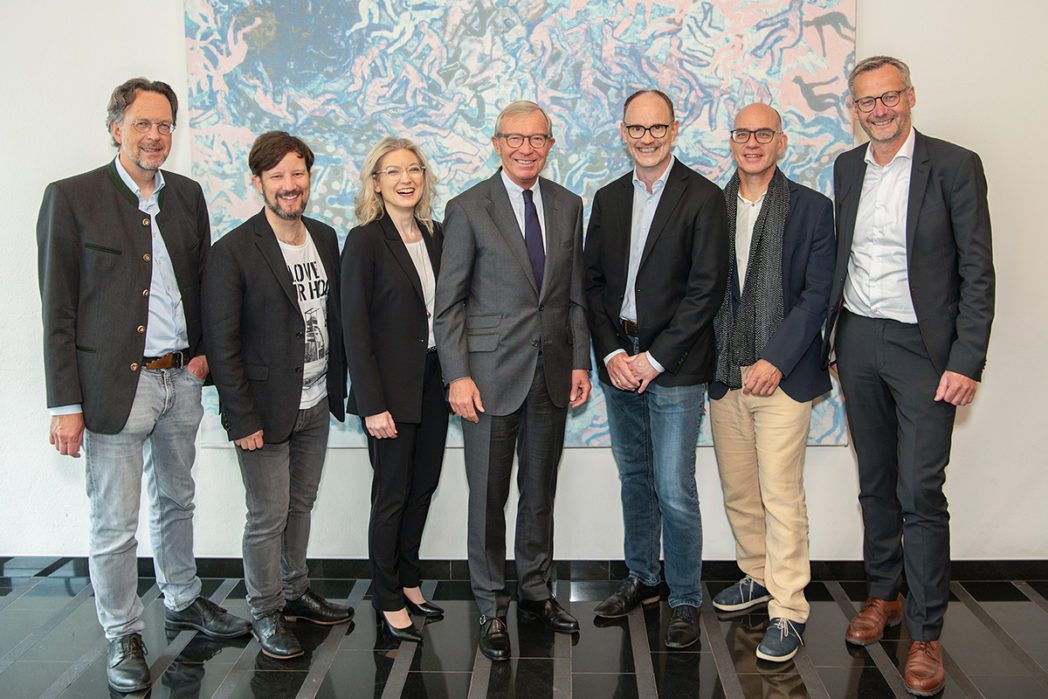
The expansion of the DAS was made possible through the EXDIGIT (Excellence in Digital Sciences and Interdisciplinary Technologies) project, funded by the State of Salzburg with approximately 10 million euros. This is the largest single investment to date in research funding by the State of Salzburg. Today, about 150 scientific staff work at DAS, including around 40 professors, who in turn supervise approximately 3,000 students. Students can choose from four bachelor’s programs, seven master’s programs, and two teaching subjects. Additionally, there are two doctoral programs. Other facilities include the IDA-Lab, the CD Lab GEOHUM, and the iDEAS lab
High Third-Party Funding
“It is remarkable that more than half of the scientists are funded through third-party projects,” says Bathke. “In other words, the federally funded researchers at DAS are so successful that they can, on average, finance another person through project funds.” However, there is a real challenge for everyone working in digital-analytical disciplines with interdisciplinary applications, Bathke continues: The cooperation requests from other areas always far exceed the available personnel capacities. Almost every discipline would like to collaborate with digital-analytical experts – no other academic field has come into focus as much in recent years.
Three New Bridging Professorships
Now, three interdisciplinary endowed professorships from EXDIGIT are also strengthening the faculty. They serve as interdisciplinary docking points, especially between the disciplines of the faculty, but also for researchers from other areas and institutions. Christine Bauer analyzes recommendation systems, Franz-Benjamin Mocnik researches the communication of places, and Frank Pallas builds bridges between the technical and legal worlds.
Science and Innovation Strategy 2030
Supporting the faculty was a logical consequence of the Science and Innovation Strategy of the State of Salzburg, which focuses on digitalization topics, among other things. Governor Wilfried Haslauer: “With WISS 2030, Salzburg pursues the ambitious goal of positioning our state as a scientific location with national and international appeal. With the establishment of the Faculty of Digital and Analytical Sciences, a milestone for the successful development of the University of Salzburg has been set. The flagship project EXDIGIT now provides the best possible conditions after two years of intensive work. Salzburg aims to stand for excellence, internationality, and the highest standards, thus becoming a sought-after partner beyond the region.”
Source: Press release by PLUS
This might also interest you
11. November 2025
Eleven Million Euros for Five New Research Centers
Salzburg is investing in research: around eleven million euros from EU and state funds will go toward establishing five new research and transfer centers. They cover key future-oriented topics: artificial intelligence, climate protection, health, tourism, and data security.
24. October 2025
Christian Doppler Laboratory unites Artificial Intelligence and Image Processing in Salzburg
Salzburg is strengthening its cutting-edge research: In the new Christian Doppler Laboratory for the Authentication of Persons and Object Surfaces, innovative solutions for enhanced security are being developed by combining artificial intelligence and image processing. These solutions are created in close collaboration between science and industry.
6. March 2025
salz21: Necessary Steps for the Future
On March 5, 2025, salz21 | Home of Innovation once again provided a platform for future topics, innovations, and interdisciplinary exchange. More than 1,000 visitors took the opportunity to learn about current developments and discuss perspectives for tomorrow. Three topics were particularly dominant: climate protection, artificial intelligence, and a strong Europe.
20. September 2024
15 Million Euros for Salzburg’s Life Sciences Future
The federal government and the Province of Salzburg are jointly investing in research, education and medical innovation. The new Life Sciences Masterplan strengthens cooperation between University of Salzburg, Paracelsus Medical University and Salzburg University Hospital, focusing on cancer research, neuroscience and regenerative medicine.